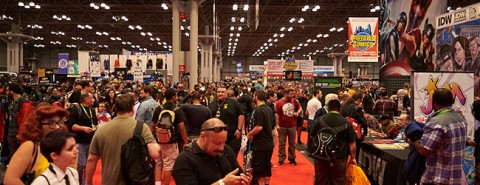We’re all geeks now

I could have been at any academic conference—except that Cat Woman was on my left and a fully dressed hobbit was on my right. In front of me sat two zombies, a Japanese manga character, the Flash, and Hello Kitty.
I was attending a panel presentation on “Autobiography and Queer Comics” at the tenth annual New York Comic Con, the largest comics convention in North America. Comic Con includes mainstream comic books (e.g., Marvel and DC), indie comics, graphic novels, Japanese manga and anime, video games, and many other genres of television and film. If a pop culture object (show, book, game) has any element of fantasy or supernaturalism, however broadly defined, it’s probably represented at Comic Con. An insider catchall term for this is geek media.
People who love geek media are its fandom: superfans, fanboys, and fangirls. Scholars observing the phenomenon often use more religiously loaded terms like devotee or acolyte, and it’s not hard to see why. The level of intertextual criticism on superfan websites like Den of Geek, Black Girl Nerds, and Girl Gone Geek reminds me of a church father weaving scriptural references across the canon—only here the texts are gothic comics, graphic novels, and gaming strategies. As I listened to fans compare references to comic books in recent films and dissect favorite characters on fan fiction websites, I wondered if anything I teach would ever inspire such passion, commitment, and communal connectivity.




